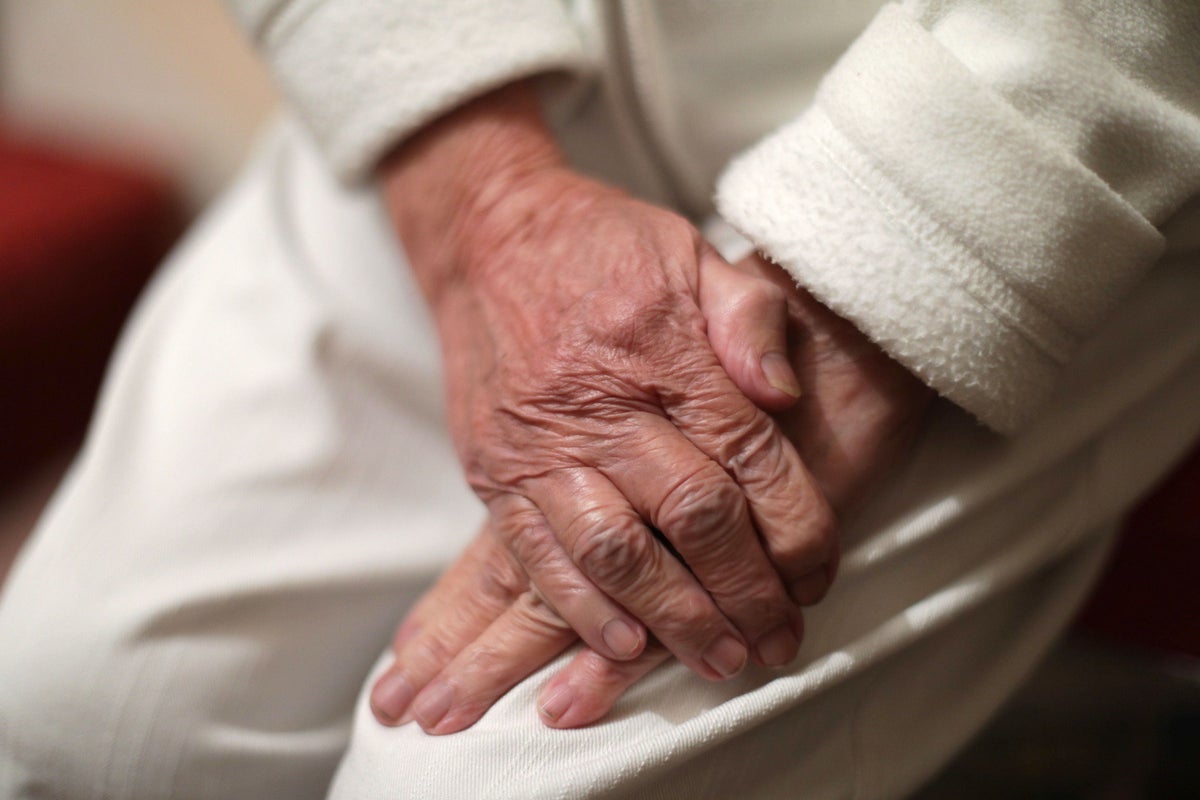
Twenty-five minutes of slow walking a day for older hospital patients could improve physical function, new research has shown.
Professors at Glasgow Caledonian University and the University of Cadiz, Spain, conducted the research and also discovered the small amount of exercise can reduce the number of return admissions.
The study looked into the detrimental effects of hospital admission on the health of older adults and how it can be counteracted by physical activity.
Researchers said the majority of older people are sedentary in hospital, and found they often spend up to 95% of their day in bed or sitting, which in turn may lead to a loss of physical function in a matter of days.
This can cause other health problems after being discharged.
Other scientists involved in the projects were from Bristol, Spain, Norway, Belgium and Australia – who examined 3,500 patients spanning a total of 19 studies.
The paper, titled Optimal dose and type of physical activity to improve functional capacity and minimise adverse events in acutely hospitalised older adults: a systematic review with dose-response network meta-analysis of randomised controlled trials, has been published in the British Journal of Sports Medicine.
Research has been carried in space and in multiple settings that show within 24 hours, you lose a vast amount of your muscle mass and cardiovascular fitness— Professor Chastin, study collaborator
Professor of health behaviour dynamics at Glasgow Caledonian University, Sebastian Chastin, is a leading collaborator in the study.
He said: “We pulled together and reviewed all the research carried out on this subject around the world and concluded that as little as 25 minutes of slow walking while in hospital could improve the health of older adults while in hospital and reduce the risk of occurrence of further problems by 5%.
“Optimally 50 minutes per day should be adopted in the regular treatment of older adults in hospital, or a combination of 20 minutes of resistance training and 20 minutes of aerobic activity.
“The research findings are relevant to every hospital around world. There is nothing we can do about the fact that, as we grow older, at some point we are going to have some health problems and end up in hospital for a period of time.
“But hospitals are organised in such a way that often, for multiple reasons, people are immobilised and asked to stay in bed, and are not encouraged to be active.”
He added: “Even just walking around creates problems in the structure of the hospital, but all that time you are spending immobilised means that you are becoming less fit and deconditioned very quickly.
“Research has been carried in space and in multiple settings that show within 24 hours, you lose a vast amount of your muscle mass and cardiovascular fitness.
“The likelihood is that you will get better from the specific condition you were hospitalised for, but while you were there, you were actually making your body worse for many other reasons.
“We know that if you’re not fit, especially if you are an older adult, the likelihood of catching another illness and developing a chronic condition, or even falling, is more likely, so what the results show is that if we did encourage mobility in hospital, we would have fewer people coming back to hospital and, therefore, we would be reducing healthcare costs worldwide as a result of that.
“We are sympathetic to the clinical staff that are overburdened everywhere it’s actually beneficial to everyone in the long run.”
Professors Borja del Pozo Cruz and Chastin said there was a growing grassroots movement, called #endpajamaparalysis, of frontline healthcare staff around the world who want to see this happen to make their lives easier – but it is not supported by the system.
Hospitals put people in bed because they think it’s the safest place but our research shows that it’s not— Professor del Pozo Cruz, principal investigator
Professor del Pozo Cruz, of the University of Cadiz and principal investigator in the study, said: “This is a robust sign, backed up by science, that mobility within hospitals is essential. It should be a red flag in hospital care settings to say we have to do something to fix this.
“Getting people out of bed is more beneficial. Hospitals put people in bed because they think it’s the safest place but our research shows that it’s not.
“One of the key points in our research paper is that we compared different types of physical activity we could do with different patients.
“The most effective one appears to be just getting up and moving around, and that’s very doable. It is a matter of organising the hospital setting so that we are able to promote that better.
“With as little as 25 minutes per day you start to see a considerable health benefit.”







